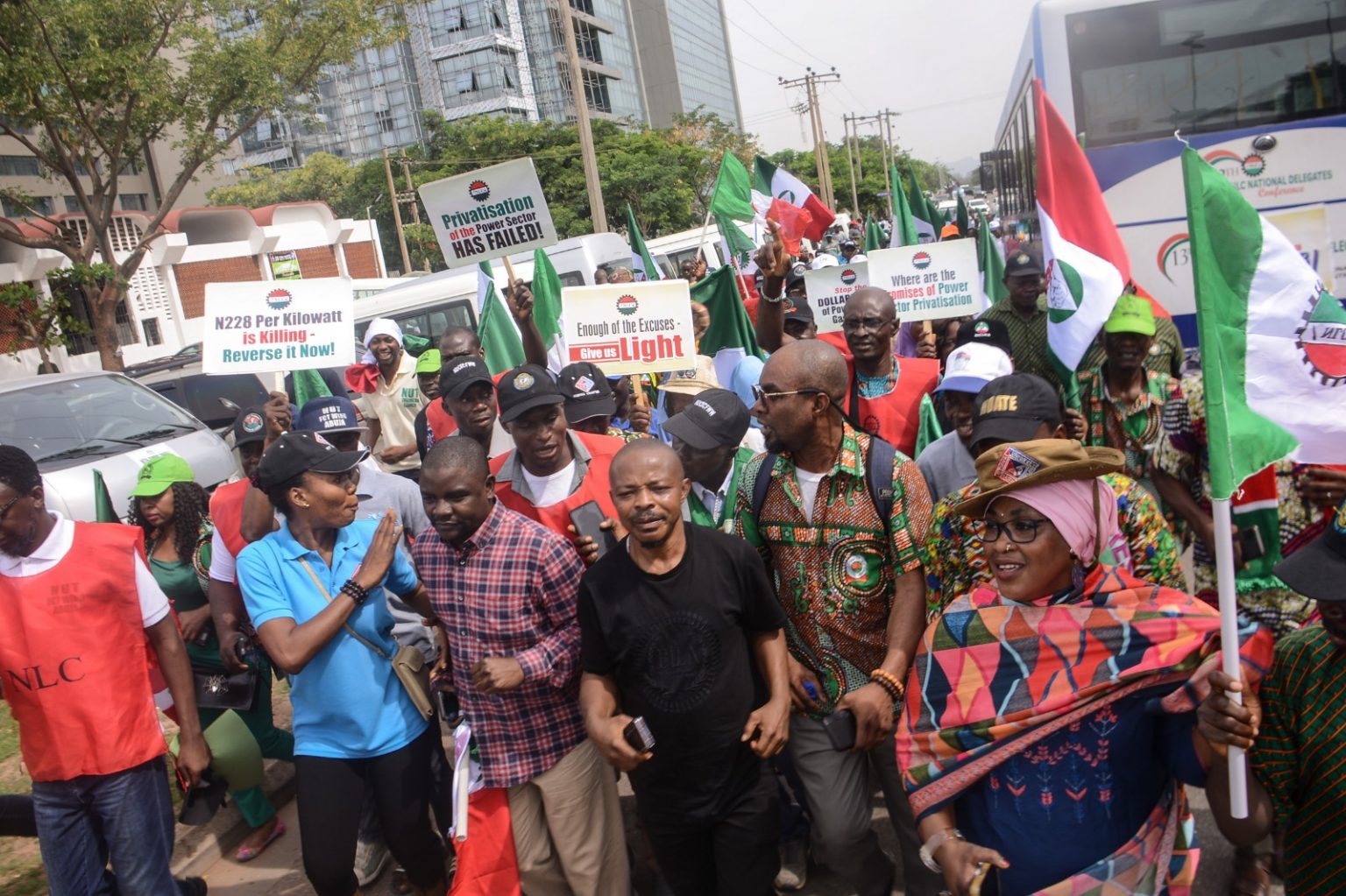
Minimum wage: Labour threatens 30-day strike, alleges plan to decentralise talks
In opposition to the National Assembly's intentions to deregulate the country's minimum wage, the Nigeria Labour Congress vowed on Tuesday to close down the nation for a month.
NLC's warning coincided with the country's waiting for a new national minimum wage, which was reached after months of talks involving organised labour, the federal government, and organised private sector.
Speaking on the fringes of the 67th Nigeria Employers' Consultative Association Annual General Meeting in Lagos, NLC President Joe Ajaero stated the union's stance.
"A Joint Committee of the Senate, the House of Representatives, and the Judiciary is meeting as we speak," Ajaero stated. Section 34 will now be on the concurrent list instead of the exclusive legislative list, allowing state governors to determine what to pay you and so that there will be no minimum wage again. You cannot decide what you should earn.
"They will be their gatekeepers and drivers, and there won't be any movement for a month, the moment the House of Representatives and the Senate draft legislation that would not help Nigerian workers. We cannot tolerate a scenario in which members of the National Assembly and governors compel labourers to earn slave wages and push the populace into poverty. The Labour Organisation will not tolerate it.
"We don't have a situation where people determine their wages that amounts to some level of illegality," the president of the NLC continued. There is a clause requiring equal labour for equal compensation in the constitution. Examining the job and conducting a job analysis could reveal that this clerk could be performing the same work as the clerk in Sokoto.
"It is contrary to the principles of equity and equality before the law to pay someone here less than they are receiving through the so-called decentralisation of wages."
The International Labour Organisation acknowledges wage as a national legislation, according to the president of the NLC, and states that it is not for sub-nationals.
"Every country has its minimum wage and some states are paying higher than the basic minimum wage, and that is the position of the law anywhere," the labour leader insisted.
He added that some, however, who were incited by the governors, claimed that even if their members attended the meeting with labour, they would not be able to pay N60,000 because it was an unlucky move.
"We've issued notice to our members.that if these people succeed in coming up with such unpatriotic and obnoxious law. This democracy they are playing with, we have enough in this country in terms of hardship. Some people, based on their privileged positions want to inflict more Injuries on the workers and citizens of this country and that will not be accepted,” he stressed."
The labour movement will not tolerate "slave wages," he continued.
"Every worker in Nigeria is viewed as a Nigerian worker, and the NLC will fight any attempt to degrade them in a federation.
"Every governor in the country receives the same amount; they are not compensated based on their state's revenue, but they desire that to be the case for the employees. Therefore, the argument that money should be used to support minimum wage payments is weak. He said, "If any governor is making that argument, then he has no idea what good governance is all about.
Ajaero stressed that a governor of that kind must apply his abilities and wisdom to the welfare of the state.
He said, "Governors can do better, and they should stop moaning. Moaning about not being able to pay will not pay in the long run because there is a lot of money for them to control."
Ajaero went on to say that a family of six may subsist on N60,000 per month and still work.
He argued that the NLC had put out other suggestions, except the size of the minimum wage, which Nigeria would not have faced if the government had taken action long before the oil subsidies were removed.
A proposal to transfer the minimum wage from the exclusive list to the concurrent legislative list is currently being considered by the National Assembly Committees on Constitutional Review, according to Mr. Kingsley Chinda, the Minority Leader of the House of Representatives.
The minority leader's explanation was made in response to Ajaero's assertion that the legislature was moving towards decentralising the minimum wage so that individual states may set what is affordable for them to pay.
Chinda noted that there are differing viewpoints over whether minimum wage issues belong on an exclusive or concurrent list when speaking in Abuja on Tuesday. She added, "There is a proposal to move it to concurrent list where states could legislate on labour matters."
The prominent member of the Peoples Democratic Party suggested that labour matters should continue to be on the exclusive list, even if she acknowledged that federal laws take precedence over state laws in cases of conflict.
"The Federal Government should consider a minimum living wage for all workers, both public and private," he said in reference to the minimum wage. State or company wage caps apply; they cannot be lowered.
Industrial courts ought to establish precedents and standardise procedures for resolving labour disputes. If it becomes a governmental responsibility, states will presumably establish their own industrial courts.
Furthermore, he said that a decentralised system "will affect checks on the government and weaken the labour movement." It is more likely for governors to embezzle money from their state labour unions.
He asserts that national policies govern how international labour issues are handled, emphasising that "it will be complex if state labour groups become independent."





